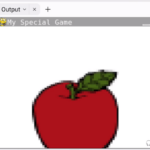Whether you’re a budding code enthusiast or a seasoned developer, getting under the hood of your programming language can give you a powerful edge. Today, let’s delve into the exciting world of CPython, the default and widely-used implementation of the Python programming language. Your journey into its intricacies and uses is sure to boost your code-writing prowess, making you a more versatile and effective coder.
Table of contents
Unveiling CPython
So, what exactly is CPython? Diving into its definition, CPython is simply the reference implementation of Python, written in C and Python. It is often referred to as the “native” Python as it’s the version of Python available directly from the Python Project.
CPython is not just Python written in C; it interfaces with the C programming language, enabling you to use C within Python code. This feature unlocks a realm of capabilities for your projects, ranging from proprietary algorithms to high-performance computing.
Understanding the core implementation of Python through CPython lets you leverage your work in Python more efficiently. It equips you with the ability to perform operations in C – a low-level language known for its efficiency and speed – right within your Python code.
If you’re both a Python and C enthusiast, it bridges the gap between the two, allowing you to interpolate C code in your Python applications. A knowledge of CPython thrusts you into a new tier of coding expertise, making you an invaluable asset in any Python-centric project.
Step 1: Installation
Before we start coding, we need to have Python installed in our system. Here is how you can do it:
sudo apt-get update sudo apt-get install python3.6
Step 2: Writing Your First Script
Let’s create a simple hello world script. Create a new Python file and add the following code:
print("Hello, CPython world!")Step 3: Running Your Script
To run the script, use the python command followed by the script name in the terminal:
python3 hello.py
Step 4: Creating a Basic Function
Next, let’s create a basic function that says hello to a specified name:
def greet(name):
print("Hello, " + name)Step 5: Calling the Function
Now, let’s call this function to make sure it works:
greet("Zenva CPython learner")You should have seen ‘Hello, Zenva CPython learner’ as the output.
Step 6: Multiple Functions
We can create a program that contains several functions. Now, let’s make another function that will bid farewell:
def farewell(name):
print("Goodbye, " + name)And now you can use both of these functions for an arrival and departure:
greet("")
farewell("Developer")The output should be:
Hello, Developer Goodbye, Developer
Step 7: Using If-Else
Lastly, let’s use an if-else statement in our script:
def check(num):
if num > 10:
print("Number is greater than 10.")
else:
print("Number is less than or equal to 10.")You can call this function with a number:
check(15)
If everything is correct, the output should be ‘Number is greater than 10.’ With these basics, you are well on your way towards mastering CPython!
Step 8: Working with Lists
Python lists are very flexible and can hold completely heterogeneous, arbitrary data, and they can be appended very efficiently. Let’s try an example:
def list_example(): list = [1, 'CPython', 3.2] print(list)
And now call this function:
list_example()
The output brings a list with diverse data types: Integer, String, and Float.
Step 9: List Iteration
We can even iterate over the list by using a for loop:
def iterate_example():
list = ['one', 'two', 'three']
for item in list:
print(item)Calling this function:
iterate_example()
Should render each item in our list line by line.
Step 10: Using Lambda Functions
Python supports the creation of anonymous functions (i.e. functions that are not bound to a name) at runtime, using a construct called ‘lambda’. Try the following:
double = lambda x: x * 2 print(double(5))
The output should be 10. The lambda function doubled our input value, as expected.
Step 11: Importing Modules
Python comes with a large collection of standard modules that you can use as the basis of your programs. As your program grows more complex, you may want to split it into several files for easier maintenance, or to reuse several functions in several programs. Here’s how you can import a module:
import datetime print(datetime.datetime.now())
The output will be the current date and time.
Step 12: Understanding Class and Objects
A class creates a new type where objects are instances of the class. Objects can store data using ordinary variables that belong to the object. Let’s try:
class MyClass: variable = "hello" def object_test(): object = MyClass() print(object.variable)
And don’t forget to call the function:
object_test()
This should print ‘hello’. This is an example of how we can create an object of a class and access its variable.
Through these steps, you’ve seen how CPython works in practice. While we have only scratched the surface, you’re now more than equipped to embark on a more profound journey into the expansive opportunities offered by CPython.
Next Steps
Now that you have dipped your toes into the vast ocean of CPython possibilities, it’s time to dive deeper into the Python paradigm.
One potent weapon in our arsenal of courses is our Python Mini-Degree: a comprehensive and versatile course designed to harness your Python potential efficiently. The Python Mini-Degree grapples with diverse Python-centric topics such as coding basics, algorithms, object-oriented programming, game development, and app development. Whether you’re a neophyte in Python or an experienced code master, this curriculum is designed to be flexible and cater to your specific needs.
Each of the courses in our Python Mini-Degree includes hands-on projects, quizzes, and live coding lessons to reinforce your learning. By completing these courses, you’ll emerge empowered to build your own enchanting games, dynamic apps, and even state-of-the-art AI chatbots.
So why wait? Start your journey towards Python mastery today by checking out our Python courses. We’re excited to guide you along your path to becoming a Python professional.
Conclusion
The world of programming is ever-evolving and thrives on constant learning. By understanding and mastering the nuances of CPython, you usher in a wealth of opportunities to innovate, optimize, and refine your coding craft. Your newfound skills will enable you to navigate your Python-centric projects with increased confidence and ease.
There’s no time like the present to embark on your journey to Python proficiency. Check out our Python courses today and let us at Zenva guide you in your pursuit of coding excellence. Remember, every journey begins with a single step. Here’s to your CPython journey!
Did you come across any errors in this tutorial? Please let us know by completing this form and we’ll look into it!

FINAL DAYS: Unlock coding courses in Unity, Godot, Unreal, Python and more.







